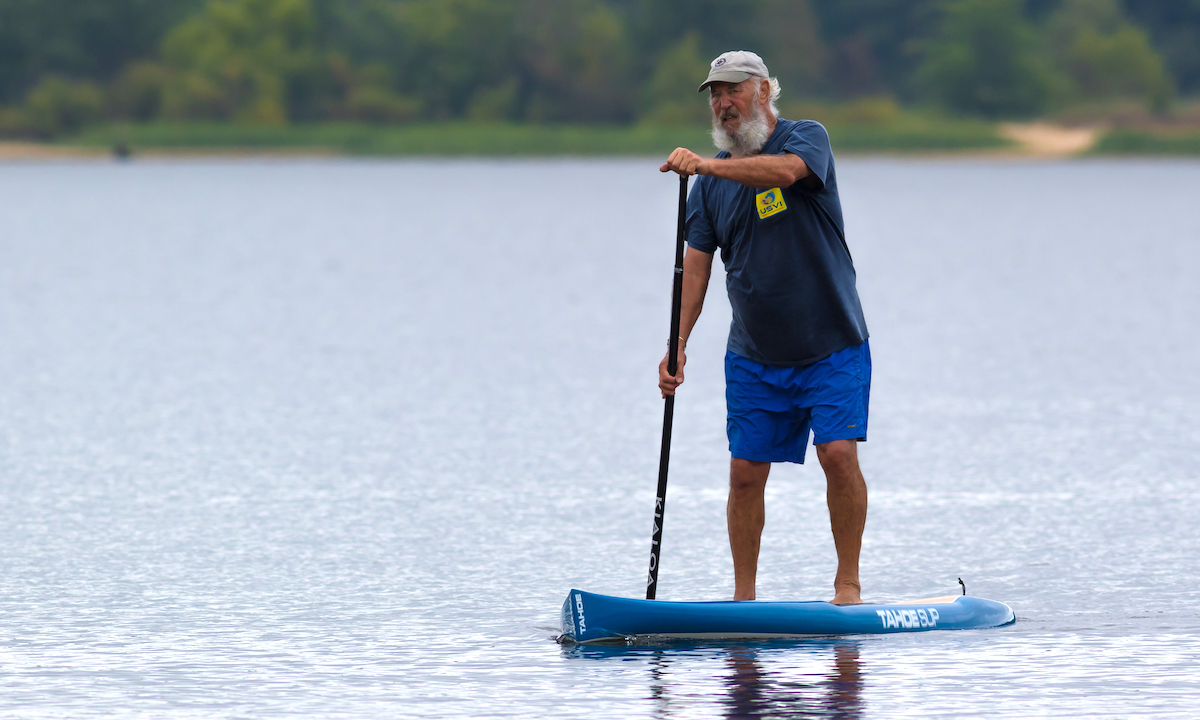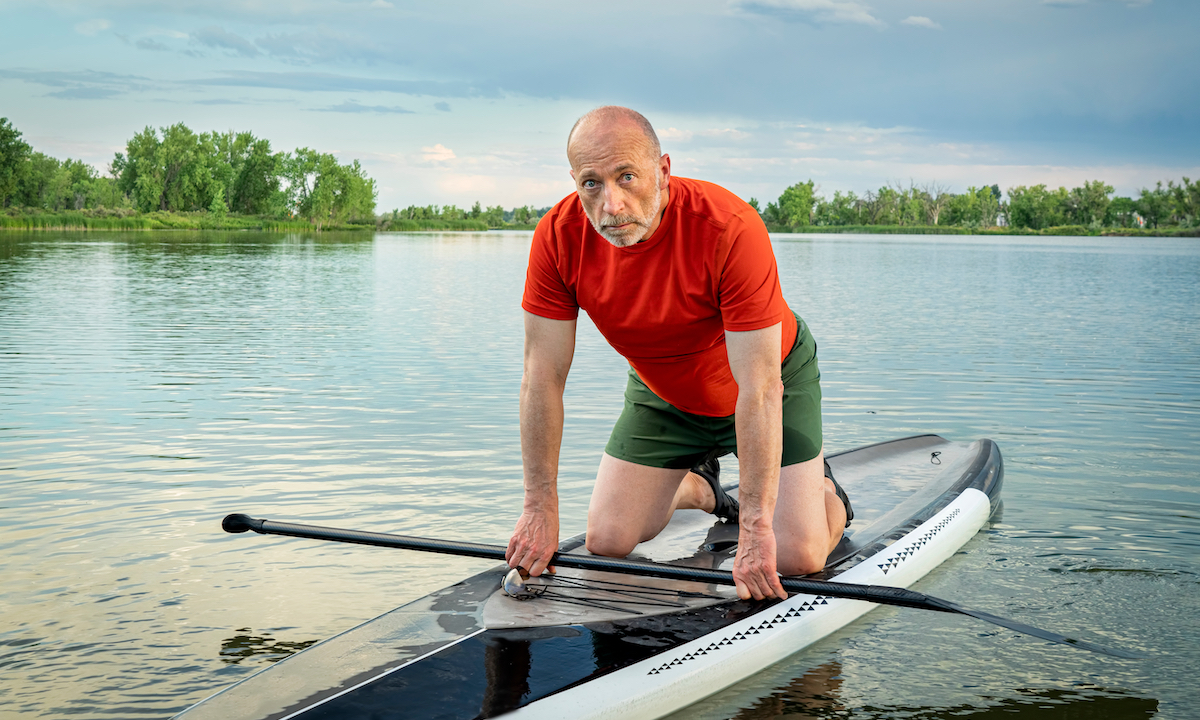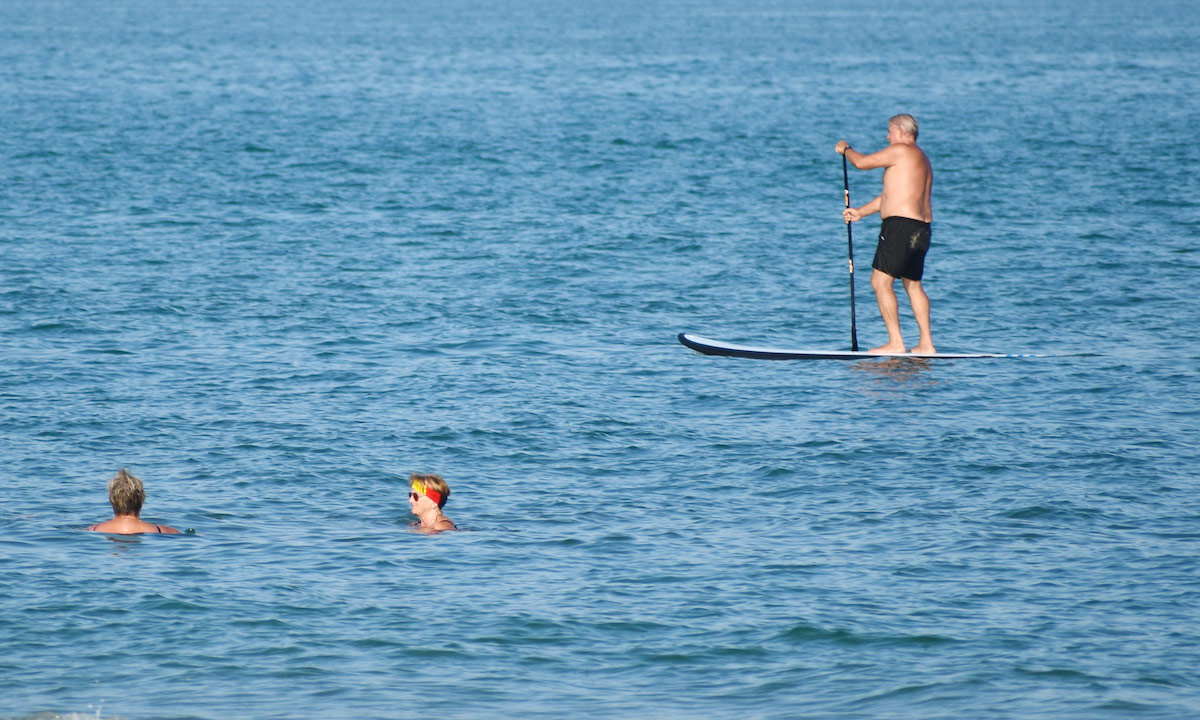Tricks for Making SUP-ing Just as Easy at An Older Age
- Written by Jennifer Dawson
- Published in Tips
- Comments::DISQUS_COMMENTS
More than a quarter of Americans over the age of 50 are not getting enough exercise, meaning that they’re more at risk for falls, broken bones, and other serious health situations. With that said, older adults who participate in regular exercise — such as stand-up paddleboarding (SUP) — often reap the many health benefits that come along with the sport. However, that doesn’t mean that SUP is always easy for people as they age. Fortunately, there are many ways you can alter your exercise routine and keep SUP-ing, no matter how old you are.
Progressive training is a must
 |
 |
Photos: Shutterstock
Many older adults may face challenges with paddleboarding for a number of reasons. For example, they may be reluctant to participate out of fear of falling or other injuries, and some might feel discouraged by health issues. Common aches and pains can also play a part in how much more difficult SUP can become for some as well.
However, it’s important to keep in mind that there are several health benefits associated with SUP-ing, which include building strength, endurance, and maintaining a healthy and active lifestyle as you age — not to mention the fact that it’s a great full-body workout. With that said, it’s necessary to not overdo it. Overexerting yourself by pushing your physical limits can lead to injury, exhaustion, and dehydration, which is why progressive training is a must for all older paddlers. Progressive training can allow you to build up your strength at a pace that’s right for you, allowing you to take into account your needs so that you don’t become exhausted, dehydrated, or injured.
The benefits of having goals
 Photo: Shutterstock
Photo: Shutterstock
Setting and working towards goals can be a great way to make standup paddling at a later age easier, as it can allow you to work up to your expectations in a simple way. For instance, instead of jumping into paddleboarding in the ocean without previous experience, setting a goal to do so with an instructor or working your way up to paddleboarding in open waters an be a great alternative.
Setting goals to save money while standup paddleboarding can also be quite possible. For instance, SUP-ing locally can help you to stay fit and reduce associated costs (such as the cost of travel to further locations) — a major plus if you’re working with a set retirement budget. In a nutshell, goal setting can not only give you something to look forward to, but can allow you to accomplish more within the sport than you ever thought possible. Plus, you'll gain all of these benefits while building your skills and experience, even if you’ve been paddleboarding for years.
SUP with friends
 Photo: Shutterstock
Photo: Shutterstock
Since it's easy to get discouraged about continuing paddling as you age for a number of reasons, you might even think about giving it up altogether. However, by standup paddling with friends regularly, you can continue to do what you love with the encouragement and support from them. This can be extremely important, as it can encourage you to maintain a healthy routine and continue an active lifestyle — all while being social. What’s more: you can pick up tips from friends when it comes to paddleboarding at a later age. For example, a friend might know where the calmest waters are or be familiar with a great way to relieve back pain after a long day of SUP-ing.
SUP is a great full-body workout and hobby for anyone of any age, though it can be especially difficult to keep up with for some people later in life. By following simple tips such as SUP-ing with friends, setting goals, and progressively training, you can make it easier on yourself to happily continue the sport, no matter your age.
For more SUP tips, click HERE.

Jennifer Dawson
Jennifer Dawson is an experience freelance writer who specializes in food and nutrition. Working in fitness marketing previously gave her a good feel for the industry and since going freelance she has been able to explore her preferred topic areas such as diet, nutrition and food. Outside of work, Jen enjoys traveling, swimming and spending time with her young family.
Email This email address is being protected from spambots. You need JavaScript enabled to view it.





